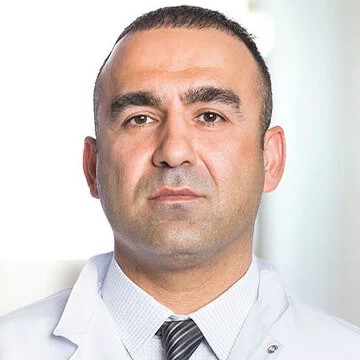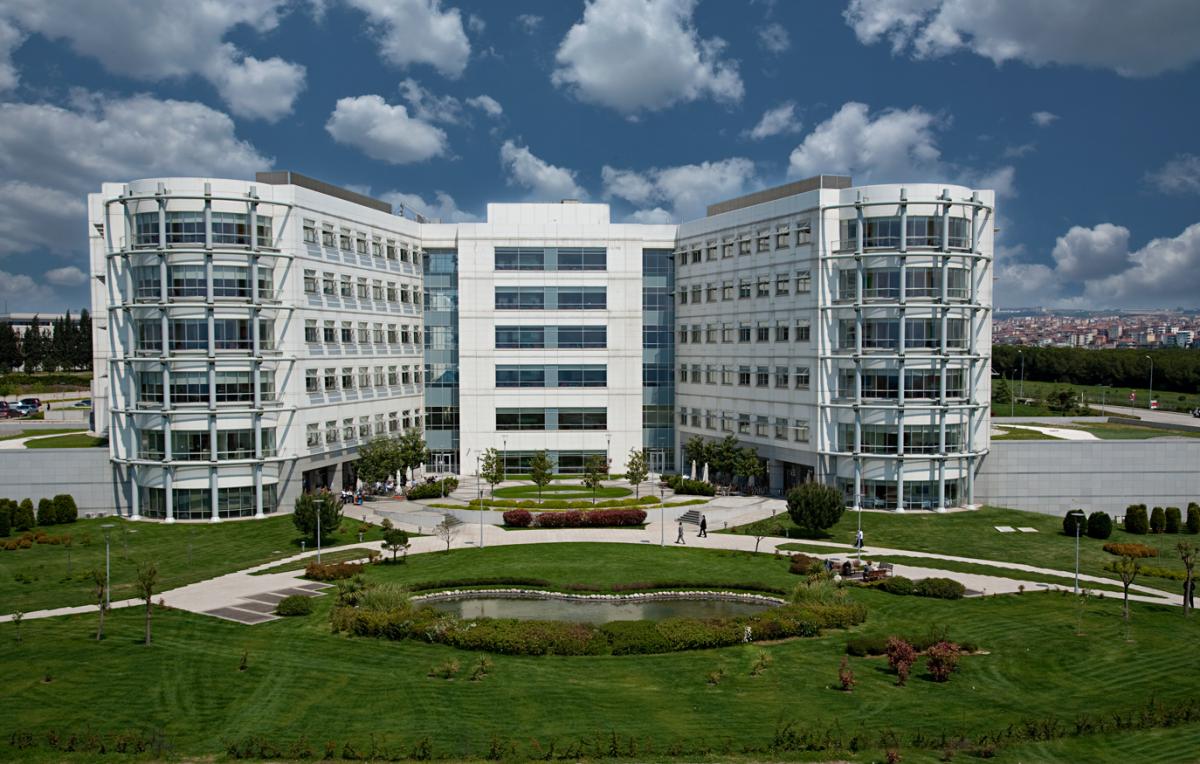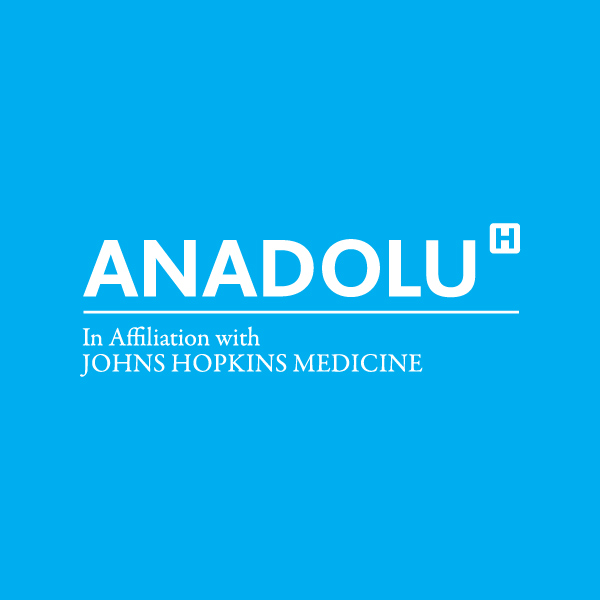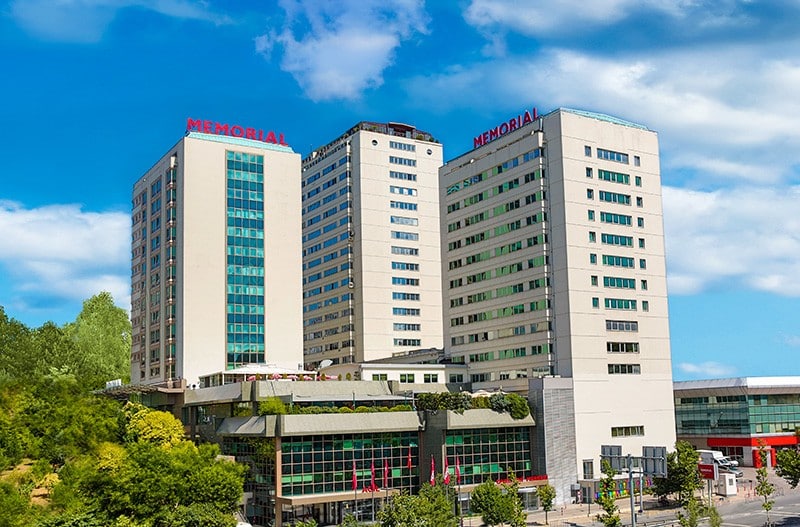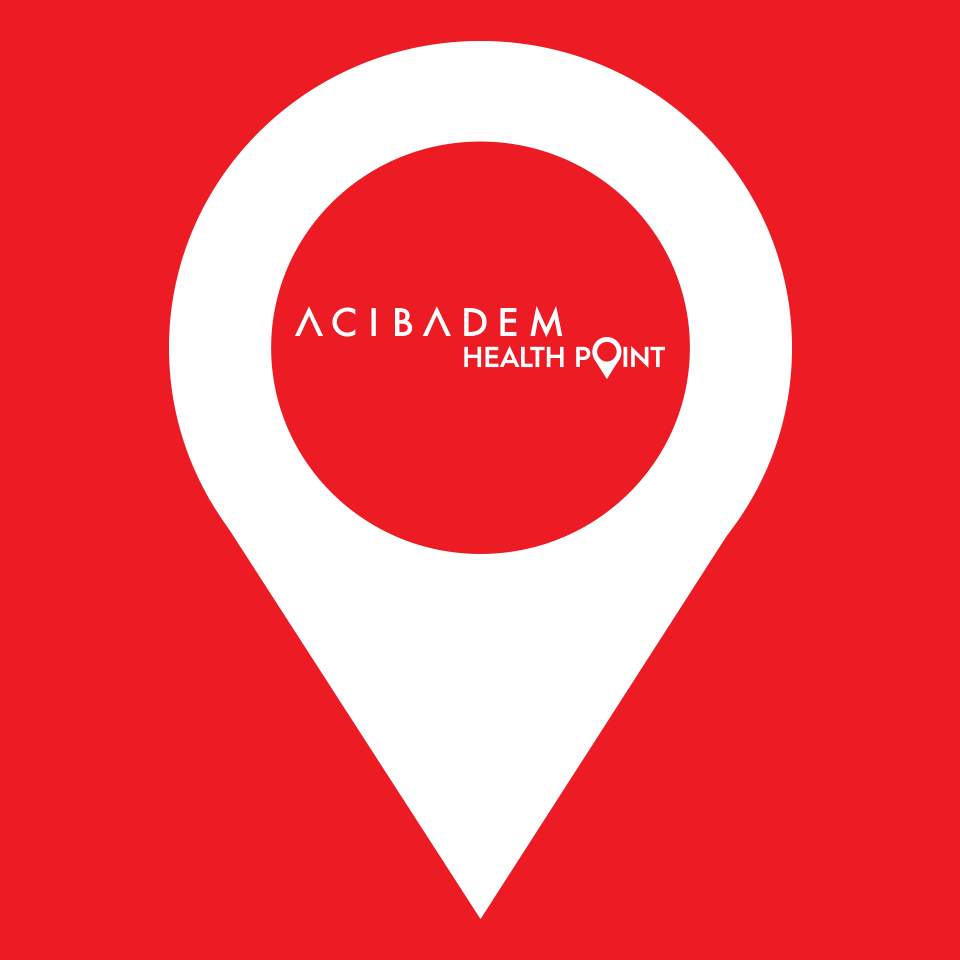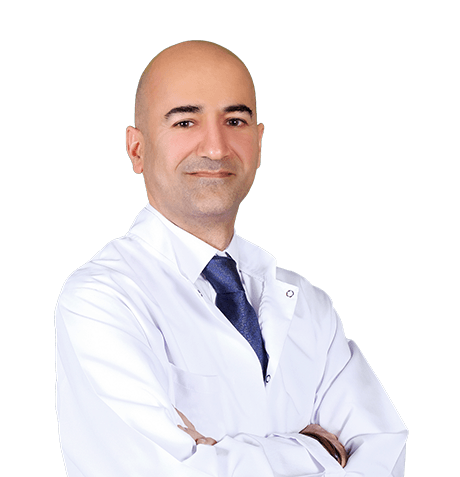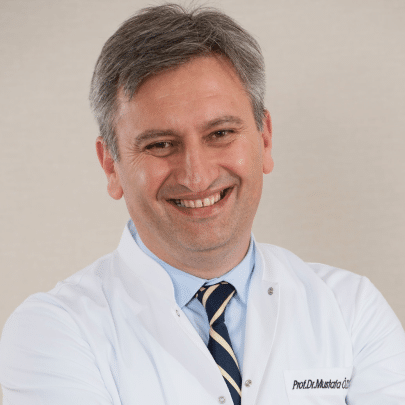- At the clinic's price without markups
- with full doctor support
Ovarian cancer has long been considered one of the most challenging oncological diagnoses for women. According to GLOBOCAN, around 3,855 new cases are diagnosed in Turkey each year. The five-year survival rate varies from 50% to over 80%, depending on the stage and treatment method (BMC Cancer, 2023). However, medicine has made significant progress in recent years. In Turkey, patients have access to advanced diagnostic tools and modern treatment methods, as well as specialists who focus specifically on gynecologic oncology. The country’s top clinics provide care that meets international standards, offering organ-preserving surgeries, targeted and immunotherapy drugs, and state-of-the-art radiation therapy technologies. Thanks to this, women have a real chance not only to overcome the disease but also to maintain a good quality of life.
Ovarian Cancer Treatment and Survival Statistics in Turkey
Ovarian cancer is one of the more complex types of oncology, and treatment outcomes largely depend on the stage at diagnosis and the chosen therapeutic strategy. In recent years, data published in Turkey have shown significant progress in managing this disease.
According to the GLOBOCAN project, around 3,855 new ovarian cancer cases are diagnosed in Turkey each year. The incidence remains relatively low compared to other types of female cancers, but mortality continues to be a serious concern (IARC, 2020).
Research shows varying five-year survival rates:
- A large Asian meta-analysis ranked Turkey among the countries with the highest five-year survival rates at 85.27% (BMC Cancer, 2023).
- However, other national studies report an average survival rate of around 50%.
- In a single-center study covering ten years of experience, the median overall survival was 89.9 months (about 7.5 years), with recurrence observed in 48.8% of patients (Acta Oncologica Turcica, 2020).
Recent findings also highlight the effectiveness of modern drugs. In the Turkey Early Access Program using the targeted therapy Olaparib, the median progression-free survival was 19.3 months, with a one-year progression-free rate of 88.4% and a two-year rate of 53.8%. The overall survival rate after one year was 92.3%, and 61.5% after two years (ASCO, 2023).
Most ovarian cancer cases in Turkey are diagnosed at stage III, which makes treatment more challenging and reduces long-term survival rates.
Ovarian cancer treatment methods in Turkey and their costs
- Surgical treatment
Surgery to remove the tumor is the primary step in therapy. In Turkey, minimally invasive and robotic techniques are used, reducing the risk of complications and speeding up recovery.
- Cost of surgical intervention: $8,000–15,000
- Port placement for chemotherapy: $2,500–3,000
- Chemotherapy
Chemotherapy is prescribed either as a standalone treatment or in combination with surgery. Modern drugs and treatment protocols are used.
- One course of chemotherapy: $1,300–2,500
- Comprehensive package (PET-CT, 1 course of chemotherapy, and 1 course of radiotherapy): $6,000–12,000
- Targeted therapy
Targeted therapy is prescribed for certain mutations and in cases of disease recurrence. It works by blocking tumor growth at the molecular level.
- Course cost: $1,300–5,600 (depends on the price of the specific targeted drug)
- Immunotherapy
Modern immunotherapy drugs help activate the patient’s immune system to fight the tumor.
- Course cost: $700–5,000
- Course with Keytruda (Pembrolizumab): approximately $3,500–3,700
- Radiation therapy
Radiotherapy is used to control metastases or manage tumor-related complications, employing IMRT and TrueBeam technologies.
- Radiotherapy (10–30 fractions): $3,500–8,000
- IMRT/TrueBeam: $7,500–8,000
- Diagnostics and control
Modern imaging and genetic tests are used to establish a diagnosis and select the optimal treatment plan.
- Oncologist consultation: $150–350
- PET-CT: $650–1,100
- Pelvic MRI: $400–600
- Genetic testing (NGS): €1,300–3,500
On average, a complete ovarian cancer treatment program in Turkey—including surgery, chemotherapy, diagnostics, and supportive care—costs $15,000–25,000. This is significantly lower than in Europe or the USA, while maintaining the same level of technology and quality of medical care.
Ovarian cancer treatment in Turkey follows international protocols and is tailored to the individual patient. It typically includes surgery to remove the tumor, several courses of chemotherapy, and, if necessary, targeted or immunotherapeutic agents. Modern radiation therapy methods and genetic testing may also be used to determine the optimal treatment plan.

At Experts Medical, we have been helping patients find treatment abroad for more than nine years. During this time, we’ve assisted over 12,000 people in connecting with top doctors, avoiding mistakes, and receiving truly high-quality medical care.
Our process is simple: you send us your medical documents, and we forward them to several clinics at once. Based on the doctors’ responses, we prepare clear treatment programs for you — outlining the methods, duration, and cost. We also review each proposal carefully to make sure there are no unnecessary procedures included.
Our services are completely free for patients. We are official representatives of leading international hospitals, which means all payments go directly to the clinic or the doctor. The cost of treatment does not increase, and in some cases, we can even negotiate special conditions.
We support you at every step:
- we select the right doctor based on your diagnosis and stage of disease,
- arrange online consultations,
- assist with visas, flights, accommodation, and interpreters,
- stay in touch 24/7 throughout the entire treatment,
- continue to support you even after you return home.
We have access to real statistics for specific doctors and clinics, allowing us to honestly advise where your diagnosis is treated most effectively. We act as your advocates — if questions or concerns arise during treatment, we communicate directly with the clinic and doctor to resolve them.
Our experience and established connections within the medical system help you save time and energy. You are never alone — your coordinator stays in touch, answers your questions, and oversees the process. We understand how important it is to feel supported when it comes to your health.
How to choose a clinic and doctor
- Experts Medical Experience
We have been organizing medical treatment for over 9 years, helping more than 12,000 patients during this time. This level of experience allows us to distinguish where patients truly receive high-quality care and where there is a risk of wasting time and resources.
- Trusted clinics and doctors
We work only with specialists and medical centers that have proven their effectiveness in practice. Our recommendations are based on years of collaboration and real patient outcomes. We focus not on marketing promises, but on actual treatment results achieved by real people.
- Individual selection
For each patient, we select a clinic and doctor individually, taking into account the type of cancer, stage of the disease, overall health, and personal factors. For example, in some cases, a center with a strong surgical team is the best choice, while in others, a clinic specializing in advanced targeted or immunotherapy methods may be more effective.
- Why is this important?
It’s difficult for a person to objectively assess the real level of a doctor or clinic on their own. We, however, have feedback from thousands of patients and proven treatment outcomes, which allow us to choose the most reliable options.
Choosing the right clinic and doctor is half the battle in treatment. And it's especially important to rely on real results rather than advertising.
How is the organization carried out and how long does the treatment take?
Initial Contact
The patient contacts us and provides medical documents—discharge statements, test results, and reports.
Clinic Analysis and Selection
We send documents to several centers simultaneously. Doctors prepare treatment plans and indicate costs. The patient receives a complete picture: what methods will be used, how long the treatment will take, and how much it will cost. Importantly, if the condition does not change, the price and plan remain the same, without revision.
Choice of a Clinic and Online Consultation
After selecting a clinic, we arrange an online consultation with a doctor in the patient’s language (often free of charge). If a visa is required, we assist with obtaining one.
Trip Preparation
We arrange flights, transfers, and accommodations near the clinic. If needed, we can provide an interpreter to accompany the patient during diagnosis and treatment.
On-site treatment and support
The patient is never alone; a coordinator is nearby to help schedule consultations and procedures, answer questions, and handle everyday tasks.
Support after returning home
After treatment is completed, the physician coordinator remains in touch to assist with interpreting prescriptions, obtaining documents, and answering any questions that arise.
Treatment abroad always begins with a clear structure so that the patient understands what to expect at each stage.
How long does the treatment take?
- Diagnostics: approximately 5 days. Includes tests, consultations, and imaging (MRI, CT, etc.). Based on the results, a consultation of doctors determines the treatment strategy.
- Chemotherapy: One course lasts approximately one month. The patient remains under the doctor's supervision and can then return home and continue the treatment as scheduled, submitting follow-up tests or returning for check-ups every three months.
- Radiation therapy: About 30 daily sessions are prescribed, which takes about a month.
- Genetic testing for targeted therapy: on average, it takes 14 days. After receiving the results, the doctor selects personalized medications. While the testing is underway, maintenance therapy is usually prescribed.
- Surgical treatment: If only surgery is required, the stay in the country takes 7-10 days, including preparation, the surgery itself and early recovery.
The duration depends on the diagnosis and the chosen therapy.
Generally, the time frame ranges from a week (for isolated surgery) to several months if combined treatment is required. The patient receives a clear schedule before their trip, allowing them to plan their recovery and logistical arrangements in advance.
Conclusion
Ovarian cancer treatment in Turkey today combines modern therapeutic methods, experienced doctors, and access to technologies that were once considered rare. Here, patients can count not only on effective care following international protocols but also on comprehensive support aimed at maintaining their quality of life.
Choosing the right clinic and doctor plays a crucial role, and that’s where having a reliable partner truly matters. Experts Medical helps patients navigate this journey without unnecessary risks or wasted time – from selecting the right specialists to providing full support at every stage. This approach makes treatment abroad clearer, safer, and more effective.
FAQ
Can ovarian tumor molecular profiling be done in Turkey, and how does it affect treatment?
Yes, full genetic testing panels (NGS) are available in leading oncology centers. This helps doctors select targeted drugs based on specific mutations and predict the patient’s response to immunotherapy. As a result, treatment becomes highly personalized, increasing its effectiveness while reducing unnecessary side effects.
How do Turkish clinics handle follow-up care after treatment?
After completing therapy, patients are scheduled for regular follow-up exams, including PET-CT or MRI scans, tumor marker tests, and consultations with a gynecologic oncologist. In most cases, check-ups are performed every 3–6 months during the first two years, then less frequently. This helps detect recurrences or complications at an early stage.
What if standard treatment protocols do not work?
Several Turkish hospitals offer access to innovative programs, including participation in international clinical trials and new immunotherapy regimens. This is especially important for patients with resistant or recurrent forms of ovarian cancer.
How does Experts Medical assist in complex or atypical cases?
We bring together several independent oncologists for a multidisciplinary consultation, allowing patients to receive multiple expert opinions. When needed, we reach out to international medical centers. This collaborative approach increases the chances of finding the most effective treatment plan.
Is it possible to continue treatment at home after starting therapy in Turkey?
Yes, in many cases, part of the treatment (for example, maintenance chemotherapy or targeted therapy) can be continued in the patient’s home country. Turkish doctors provide a detailed treatment protocol, and Experts Medical helps coordinate follow-up care and send test results back for ongoing supervision.




